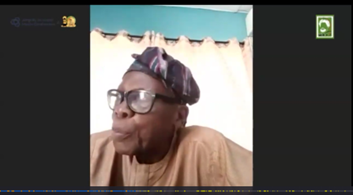Dayo Duyile, Head of the Department of Mass Communication at Wesley University, provided profound insights into the evolving landscape of investigative journalism during the panel session on the second day of the Amplify In-depth Media (AIM) Conference. Drawing on over five decades of experience in the field, Duyile discussed the interplay between knowledge, professionalism, and technology in shaping credible journalism. His remarks underscored the craft’s enduring principles while addressing its contemporary challenges.
“I don’t think the new technology has changed, mostly, the credibility of a journalist in reporting whatever they are reporting,” Duyile began. While acknowledging the enhancements brought by technological advancements, he emphasised that the essence of investigative journalism lies in the journalist’s knowledge and preparation. He said, “An investigative journalist is one that is knowledgeable in almost everything. Not a specialist journalist in the sense that he is the jack of all trades in journalism, and he must master all to become a very credible investigative journalist.” According to Duyile, lacking knowledge in diverse subjects renders a journalist’s work substandard. This comprehensive understanding is crucial for producing meaningful and impactful investigative reports.
While technology has brought significant tools to journalism, Duyile argued that it complements rather than replaces foundational skills. “Even with the new technology, it has added credibility, so to say, to reporting. It has not reduced anything, but the journalist’s knowledge on the matters that you are investigating must be the priority,” he said. According to Duyile, integrating technology provides journalists new avenues for sourcing and presenting information. However, he cautioned against relying solely on technological tools at the expense of credibility. “If a journalist chooses the wrong source to do their investigation, no matter their artificial intelligence tools, the result will lack credibility,” he warned.
Duyile’s reflections extended beyond practice to the academic preparation of future journalists. He highlighted recent changes by Nigeria’s National Universities Commission (NUC), which segmented mass communication into specialised fields such as journalism, public relations, and advertising. “This type of specialisation has made it a beautiful development in mass communication practice,” he noted. However, Duyile emphasised introducing journalism courses earlier in the academic journey. “At 100 level, the business has started,” he insisted. He argued that students should not wait until their third year to delve into the core aspects of journalism. Early exposure, he believes, enables students to acclimate to the profession’s demands and build a strong foundation. “Journalism courses should be introduced early because they are spending four years on campus. Although it will be difficult for them at first because some terminologies are strange, practical exposure in studios—both broadcast and newspaper production—will help them acclimatise before their second year,” he suggested.
He concluded by reiterating the interwoven relationship between journalists and society. “The journalist and society are interwoven because of the surveillance activity of the journalist,” he remarked. He emphasised that investigative journalism is pivotal in scrutinising power and preventing societal excesses.
Duyile’s insights at the AIM Conference resonate as a call to action for journalists and educators alike. His emphasis on knowledge, credibility, and the judicious use of technology offers a roadmap for navigating the complexities of investigative journalism in the digital age.
As he aptly put it, “Investigative reporting itself is knowledge. It’s all about knowledge on issues that interest the public.” This enduring principle, coupled with a forward-looking embrace of technology, ensures that journalism continues to serve its vital role in society. Watch here.


